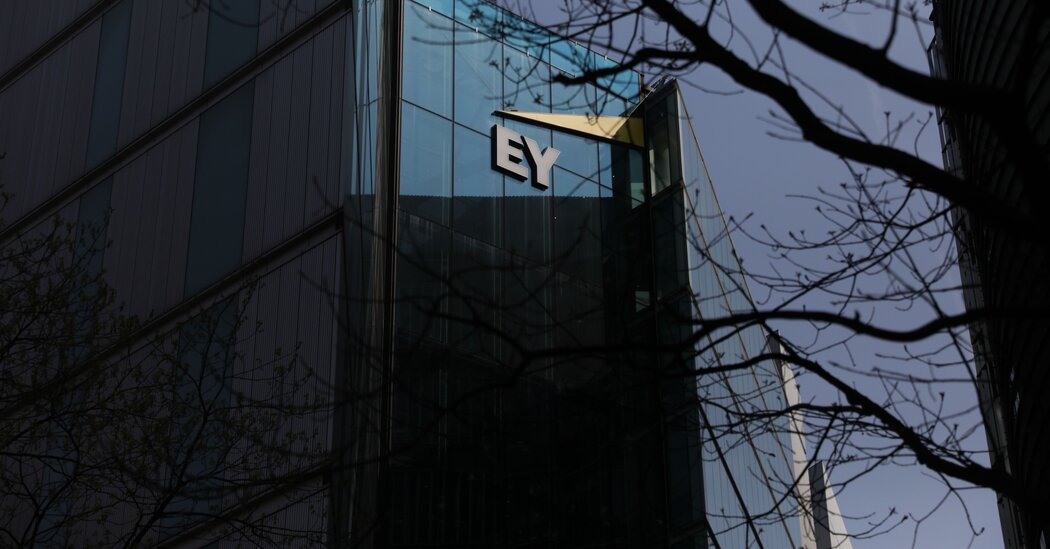
EY, the accounting and consulting firm, will split into two businesses.
EY, one of the world’s biggest auditing and consulting firms, is moving forward with a plan to split up its two main business practices.
The firm, in an announcement Thursday, said its top leadership has decided to “separate into two distinct, multidisciplinary organizations.” If the plan is approved, EY would operate as two separate companies — one that does mainly auditing work and the other that does consulting and advisory work.
The proposed split, which has been in the works and widely discussed internally for months, is intended to help avoid conflicts of interest that can arise between the auditing work and consulting work that EY does for some of its corporate clients.
The plan, if it goes forward, would also lead to big payouts for some of it partners. But the proposed split must be approved by the more than 10,000 EY partners who work in 140 countries. EY, commonly known as Ernst & Young, employs nearly 300,000 people around the globe.
EY said Thursday in the statement that it expected partners in the firm to begin voting on the proposal later this year. The firm is likely also to need to obtain regulatory approval for the plan from some of the countries it operates in.
“We firmly believe that we can embrace the changing landscape, build businesses that redefine the future of our professions, create exciting new opportunities, and deliver greater long-term value for EY people, clients and communities,” the firm’s statement said.
One way EY can achieve a split is by spinning off its consulting arm into a company that could file for an initial public offering. The auditing business would probably remain a private partnership.
The proposed split comes at a time that the Big Four auditing firms have come under growing scrutiny from securities regulators in the United States.
In June, EY agreed to pay a $100 million fine after U.S. securities regulators found that hundreds of its auditors had cheated on various ethics exams they were required to obtain or maintain professional licenses — and that the firm did not do enough to stop the practice.
The penalty paid by EY is twice the sum that KPMG, another big auditing firm, paid in 2019 to resolve an investigation by the Securities and Exchange Commission into similar allegations of cheating by auditors on internal training exams.
Another area of concern for the S.E.C. is the issue of auditor independence. Regulators want to make sure that an accounting firm’s review of a company’s financial records is not compromised by other consulting, advisory or lobbying work it might do for the company.
In recent years, the Big Four accounting firms — Deloitte, EY, KPMG and PricewaterhouseCoopers — have drawn scrutiny for lobbying for tax changes that have benefited corporate clients they have provided both auditing and consulting services. In some instances, the accounting firms have employed consultants who have devised tax-saving strategies for corporate clients while auditors are then responsible for blessing the client’s bookkeeping.
Regulators began taking a closer look at the affairs of accounting firms about two decades ago. The collapse of Enron in 2001 spotlighted the role of its auditor Arthur Andersen, which had helped perpetrate accounting fraud at the energy giant. Federal prosecutors later filed criminal charges against Arthur Andersen. The firm no longer exists.
In the aftermath of Enron’s collapse and other big corporate frauds, Congress passed legislation establishing the Public Company Accounting Oversight Board, which sits within the S.E.C. but brings its own enforcement actions against auditing firms.




